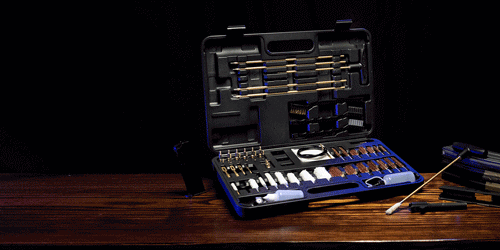Hunting in Remote Areas: Essential Gear and Safety Tips
Hunting in remote areas is an incredible way to connect with nature and pursue wild game in pristine environments. However, it also presents unique challenges, making preparation essential. To ensure a safe and successful hunt in these isolated locations, you’ll need the right gear and an awareness of essential safety measures. Here's a comprehensive guide to hunting in remote areas, covering must-have equipment and key safety tips to enhance your experience.

Essential Gear for Remote Hunts
When venturing far from civilization, having the right gear is crucial. Here’s a list of essentials:
Navigation Tools
- GPS Device: A reliable GPS can help you navigate without a cellular signal. Many models offer offline maps and location tracking.
- Compass and Map: Always bring a physical map and compass as backups. GPS devices can fail, and knowing how to use these tools is a lifesaver in remote terrain.
- Satellite Phone or Communication Device: In remote areas, a satellite phone or a personal locator beacon (PLB) is invaluable. These devices let you send messages or call for help in emergencies when there’s no cell service.
- Weather-Appropriate Clothing: Layered clothing is ideal, as temperatures often fluctuate. Choose moisture-wicking base layers, insulating mid-layers, and a waterproof, windproof outer layer.
- Portable Shelter: A lightweight tent or tarp shelter can offer quick protection from the elements. Choose materials that are durable and easy to set up.
- Sleeping Bag and Insulated Mat: Pack a warm sleeping bag suitable for the expected temperatures. An insulated mat will keep you warm and comfortable when sleeping on cold ground.
Survival Kit
- First-Aid Kit: A comprehensive first-aid kit is non-negotiable. Include supplies for common injuries like cuts, burns, and sprains, and any personal medication.
- Fire-Starting Tools: Carry waterproof matches, a lighter, and a firestarter. Fire is essential for warmth, cooking, and signaling.
- Multi-Tool or Knife: A multi-tool is incredibly versatile, useful for everything from gear repair to preparing food.
- Signal Mirror and Whistle: These items can help you attract attention if you're lost or in distress.

Hunting Equipment
- Rifle or Bow with Ammunition: Make sure your weapon is suitable for the game and well-maintained. Pack only the necessary amount of ammunition.
- Field-Dressing Kit: A quality knife, bone saw, and gloves are essential for processing game.
- Binoculars or Spotting Scope: In remote areas, binoculars or a spotting scope help you locate game from a distance, reducing energy spent tracking.
- Backpack for Gear and Game: A hunting backpack with load-hauling capabilities is crucial. Look for one with multiple compartments for organized packing and a comfortable, ergonomic fit.
Food and Water
- Portable Water Filter: Water sources can be unreliable in remote areas. A water filter or purification tablets let you safely drink from streams or lakes.
- Non-Perishable Food: Choose lightweight, high-calorie foods like dehydrated meals, trail mix, jerky, and energy bars. Plan for extra days just in case.
- Hydration System: A hydration bladder or water bottle with easy access can prevent dehydration during long treks.

Safety Tips for Hunting in Remote Areas
In isolated areas, safety is paramount. Follow these tips to reduce risk and increase your chances of a successful hunt:
Inform Someone of Your Plans
Before heading out, share your hunting plan, including your location, expected return time, and contact details, with someone you trust. This step is crucial if you need assistance, as they can alert authorities if you don’t return as scheduled.
Monitor Weather Conditions
Remote areas often experience sudden weather changes. Use a reliable weather app or check forecasts before heading out, and carry rain gear or insulated clothing to handle unexpected conditions. If the forecast suggests severe weather, reschedule to avoid unnecessary risks.

Learn Basic Survival Skills
Knowing how to start a fire, purify water, and set up shelter are essential survival skills. These can make the difference between comfort and survival in the wilderness. Practice these skills before heading into remote areas to ensure you’re prepared for unexpected situations.
Practice Safe Firearm Handling
Always treat your firearm with respect. Never point it at anything you don’t intend to shoot, keep your finger off the trigger until ready, and know what’s beyond your target. In remote areas, misfires and accidents are particularly dangerous due to limited access to emergency services.
Be Aware of Local Wildlife
Animals like bears, mountain lions, and snakes can pose a danger. Learn about the wildlife in your hunting area, carry bear spray if necessary, and store food securely away from your sleeping area. Understanding the behavior of local animals can help you avoid potentially dangerous encounters.
Stay Hydrated and Well-Fed
In remote areas, physical exertion can quickly lead to dehydration and fatigue. Drink water regularly, eat nutritious meals, and rest as needed. Keeping your body energized ensures you’re alert and able to handle any situation.

Stick to a Route and Don’t Push Beyond Your Limits
It’s easy to lose your bearings in unfamiliar territory. Stick to marked trails when possible, and if you’re in open land, set clear landmarks to guide your path. Avoid taking risks like crossing unknown water bodies or climbing steep terrain unless absolutely necessary.
Conclusion
Hunting in remote areas offers an exhilarating experience for those prepared to face the challenges. With the right gear and careful planning, you can enjoy a successful and safe hunt, embracing the thrill of the wilderness while minimizing risks. Always prioritize safety, respect local wildlife, and remain aware of your surroundings. A well-prepared hunter not only has a better chance of bringing home game but also of returning safely to share tales of the adventure.





